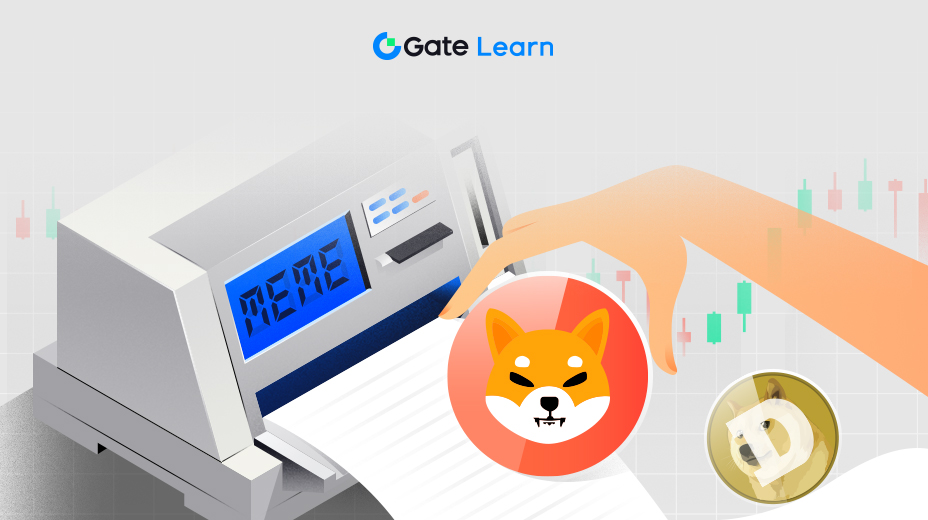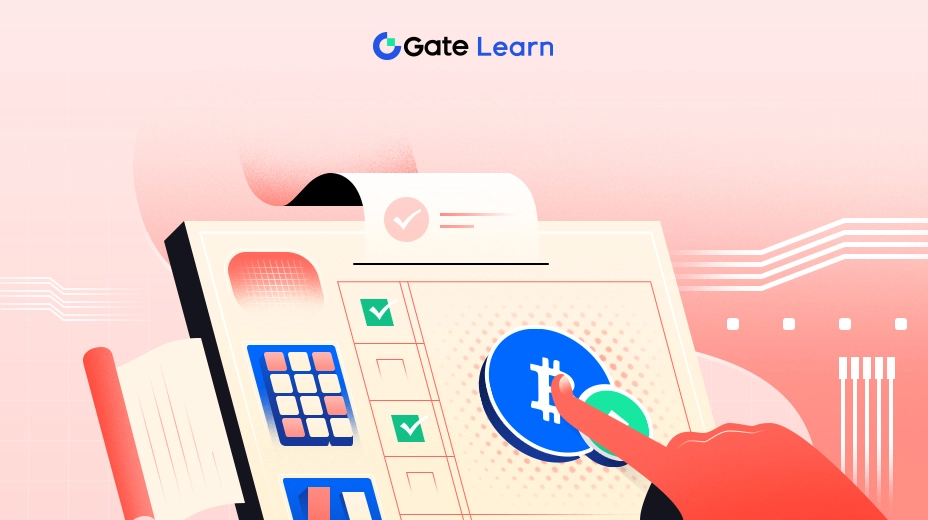資産の安全性を維持する方法
これらの攻撃は、多額の損失をもたらし、深刻な結果をもたらす可能性があります。 したがって、暗号攻撃を防ぐための対策を講じることが重要です。 このレッスンでは、信頼できるウォレットと取引所の使用、2要素認証の有効化、秘密鍵の安全維持、ソフトウェアの定期的な更新、セキュリティ監査の実施、強力なパスワードと暗号化の使用、データのバックアップなど、暗号攻撃を防ぐためのベストプラクティスについて説明します。 これらのベストプラクティスに従うことで、暗号攻撃のリスクを大幅に軽減し、投資を保護できます。
ウォレットとアカウントのセキュリティ
・評判の良い財布や取引所を利用する。
評判の良いウォレットと取引所を使用することは、暗号攻撃と戦うための最も重要なステップの1つです。 徹底的な調査を実施し、評判の良い市場で評判の良いウォレットと取引所を選択することが重要です。 ウォレットまたは取引所がハッキングされたり、セキュリティ違反が発生したりしたことがあるかどうかを確認します。 通常、セキュリティと信頼性の実績のあるウォレットまたは取引所を選択することが望ましいです。
10年間、Gate.com は安定して確実に稼働してきました。 革新的なテクノロジーの絶え間ない探求により、私たちはあなたに最高で最も安全な取引体験を提供するよう努めています。
・デジタル資産をハードウェアウォレットに保管

ハードウェアウォレットは、ハッカーやマルウェアから離れた秘密鍵をオフラインで保存する物理デバイスです。 ハードウェアウォレットの例としては、Ledger Nano S、Trezor One、KeepKeyなどがあります。
ハードウェアウォレットを使用するには、USBまたはBluetoothを介してコンピューターまたはスマートフォンに接続するだけです。 ハードウェアウォレットなどのコールドウォレットは、デジタル資産へのアクセスと取引を容易にするオンラインウォレットであるホットウォレットよりも高いセキュリティを提供します。
コールドウォレットとホットウォレットを組み合わせて使用することをお勧めします さまざまな目的 :デジタル資産のほとんどをコールドウォレットに保管して長期保管と保護を行い、一部をホットウォレットに保管して頻繁な取引や支出を行います。
・二要素認証を設定する(2FA)
二要素認証は 、ビットコインアカウントにセキュリティの層を追加し、不正アクセスを防ぐのに役立ちます。 このセキュリティ機能を使用してアカウントにログインするには、2つの身分証明書を提出する必要があります。 通常、パスワードと、モバイルデバイスに電子メールまたは送信されるコードを入力する必要があります。 2要素認証を使用することで、アカウントが侵害されるリスクを大幅に減らすことができます。
・秘密鍵は大切に保管してください。
保有している暗号資産にアクセスするには、まず秘密鍵を生成する必要があります。 秘密鍵を非公開にし、誰とも共有しないことが重要です。 ハードウェアウォレットやパスワードで保護されたデジタルファイルなど、それらを安全に保つように注意してください。 秘密鍵を紛失すると、暗号通貨資産に無期限にアクセスできなくなる可能性があります。
・契約承認の取消し
トークン承認は、ブロックチェーントランザクションにスマートコントラクトを使用できるようにする機能です。 これらの契約には、当社の資産にアクセスするための許可が必要です。 この許可は、 Etherscanのイーサリアムトークン承認 機能でいつでもキャンセルできます。 これは私たちの資産を奪うかもしれない悪いまたは危険な契約から私たちの財布を保護します。

定期的なセキュリティチェック
・定期的にソフトウェアをアップデートする。
暗号攻撃を回避するために、ソフトウェアを最新の状態に保つことが重要です。 ウォレット、取引所、その他のアプリケーションの最新バージョンを維持します。 これにより、既知の脆弱性にパッチが適用され、攻撃の危険性が軽減されます。
・セキュリティ監査を頻繁に行う
定期的なセキュリティ監査は、暗号攻撃を防ぐために不可欠です。 ウォレット、取引所、およびその他の暗号通貨関連のソフトウェアを監査すると、攻撃者が悪用する可能性のある弱点を特定するのに役立つ場合があります。 これらの脆弱性を特定することで、攻撃のリスクを軽減するためのアクションを実行できます。
・可能な限り安全なパスワードを使用してください。
強力なパスワードを選択することは、暗号攻撃から身を守るために実行できる最も単純でありながら最も重要なステップの1つです。 強力なパスワードとは、推測が難しく、文字、数字、特殊文字で構成されるパスワードです。 「パスワード」や「123456」などの単純なパスワードや定期的に使用されるパスワードは、推測しやすく、急速に解読される可能性があるため、避ける必要があります。
1つのパスワードがハッキングされた場合に攻撃者がすべてのアカウントにアクセスするのを防ぐために、アカウントごとに個別のパスワードを使用することをお勧めします。 パスワードマネージャーは、複雑なパスワードを生成して安全に保存できるため、パスワードを保存するための便利で安全なソリューションになります。
・ソフトウェア・システムのアップデート
ソフトウェアの更新に加えて、コンピュータシステムを最新の状態に保つことが重要です。 オペレーティングシステム、ウイルス対策ソフトウェア、およびその他の重要なアプリケーションの最新バージョンを維持します。 これは、既知の脆弱性に確実に対処し、暗号攻撃の危険性を下げるのに役立ちます。
データと社会保障
・機密データを保護し、暗号化を使用します。
暗号化は、データを復号化キーでのみ表示できる読み取り不可能な形式に変換するデータセキュリティテクノロジーです。 秘密鍵などの機密データを暗号化すると、セキュリティ違反やサイバー攻撃が発生した場合に、権限のない第三者がアクセスするのを防ぐことができます。
暗号化は、ウォレットや取引所に加えて、コンピューターやその他のデバイスに保存されている機密データを保護するために使用できます。 機密情報を含むファイルやフォルダーを暗号化すると、セキュリティ違反が発生した場合の不正アクセスを防ぐのに役立ちます。 ファイルやフォルダーを暗号化するために利用できるツールは、VeraCrypt、7-Zip、BitLocker など多数あります。
・重要なデータを定期的にバックアップします。
重要なデータのバックアップは、暗号攻撃を防ぐために不可欠です。 ウォレット、取引所、その他の暗号通貨関連データを定期的にバックアップしてください。 これにより、攻撃やその他のデータ損失インシデントが発生した場合にデータを回復できます。
・ファイアウォールやウィルス対策ソフトの活用
暗号攻撃は、ファイアウォールとウイルス対策ソフトウェアを使用することで軽減できます。 ファイアウォールはコンピューターへの不正アクセスを防ぐことができ、ウイルス対策ソフトウェアは暗号通貨を盗むために悪用される可能性のあるマルウェアを特定して削除できます。
・ソーシャルエンジニアリング攻撃に注意する
攻撃者は通常、フィッシングなどのソーシャルエンジニアリング手法を利用して暗号通貨を盗みます。 ソーシャルエンジニアリング攻撃を認識し、それらを回避するための予防策を講じることが重要です。 たとえば、奇妙なリンクをクリックしたり、なじみのないソースからの添付ファイルを開いたりしないでください。 また、個人情報や暗号通貨の保有を要求する迷惑メールやメッセージにも注意してください。
・公共Wi-Fiの使用は避けてください。
パブリックWi-Fiネットワークは保護されていないことが多いため、攻撃を受けやすくなります。 ビットコインアカウントなどの機密情報にアクセスするときは、パブリックWi-Fiネットワークを利用しないようにすることが重要です。 代わりに、ホーム ネットワークや職場ネットワークなど、セキュリティで保護されたプライベート ネットワークを使用してください。
ビットコインやその他の暗号通貨は近年人気のある投資オプションであり、その人気に伴い、暗号通貨取引所やウォレットに対するサイバー攻撃が増加しています。 暗号攻撃から保護するための保護手段を講じることが重要です。 信頼できるウォレットと取引所の使用、2要素認証の有効化、秘密鍵の安全維持、ソフトウェアの定期的な更新、定期的なセキュリティ監査の実施、強力なパスワードと2要素認証の使用、ソフトウェアとシステムを最新の状態に保つ、暗号化を使用して機密データを保護する、重要なデータを定期的にバックアップする、ファイアウォールとウイルス対策ソフトウェアを使用するなど、この記事で説明されているベストプラクティスを遵守することにより、 ソーシャルeコマースを認識していること、サイバー攻撃に関しては、予防は治療よりも優れていること、および攻撃を防ぐための積極的な行動を採用することは、暗号通貨への投資を保護するために重要であることを忘れないでください。





